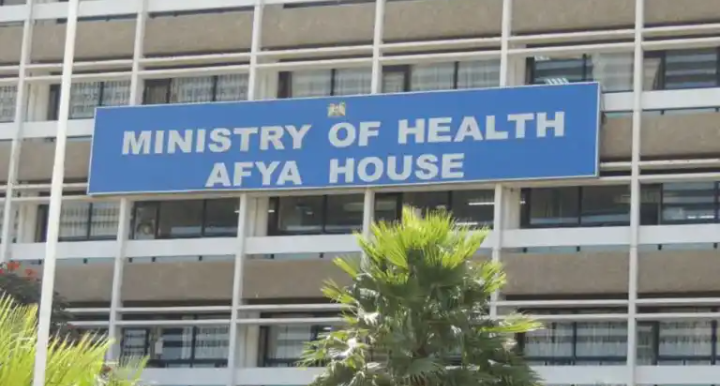Kenya’s Ministry of Health is embroiled in a significant scandal as allegations of irregular tender practices and the procurement of counterfeit HIV testing kits surface.
Amid accusations of favoritism and a lack of transparency, the integrity of the multi-billion-dollar tender process has come under intense scrutiny.
Kitutu Chache MP Antony Kibagendi has emerged as a prominent critic, raising serious questions about the Ministry’s adherence to established procurement procedures.
According to Kibagendi, the Kenya Medical Supplies Authority (Kemsa) bypassed standard protocols by not advertising the tender and allegedly handpicking manufacturers in collaboration with the Health Ministry.
He suggests that this breach of procedure points to deeper corruption within the Ministry.
The Ministry of Health, however, has firmly denied any wrongdoing.
Principal Secretary Harry Kimtai explained that the Ministry employed a direct tendering method, which does not necessitate advertising or listing qualified bidders.
Kimtai emphasized that this selection process was guided by World Health Organization (WHO) protocols and upheld validated ethical standards.
Despite these assurances, concerns about potential risks to public health remain pervasive.
The tender, detailed in circular Ref: MOH/ADM/1/1/12 dated August 22, 2023, aims to implement a new HIV testing algorithm.
This algorithm, which requires a three-test process, is slated for site-level implementation by January 2024 and will be overseen by the National Aids and STI Control Program (NASCOP).
However, Kibagendi has alleged that certain suppliers were unfairly disqualified and that a substantial portion of the supply was awarded to a single company due to undue influence from top officials at the Ministry and Kemsa.
This has sparked significant concerns about the transparency and fairness of the process.
Following the Ministry’s pre-qualification stage, only three companies were selected: Trinity Biotech Manufacturing Ltd, SD Biosensor Inc, and Guangzhou Wondfo Biotech Co., Ltd.
This decision has faced legal challenges from previous suppliers, further complicating the situation.
Critics argue that the selection process was not only opaque but also unfairly skewed in favor of certain entities, raising broader questions about governance and accountability within the Ministry of Health.
The allegations of procuring counterfeit HIV testing kits are particularly troubling given their potential impact on public health.
Accurate HIV testing is crucial for effective treatment and prevention efforts. The use of fake kits could lead to false diagnoses, improper treatment, and a subsequent increase in HIV transmission rates.
Such a scenario would undermine years of progress in the fight against HIV/AIDS in Kenya, where public health efforts have been critical in controlling the epidemic.
In response to the allegations, the Ministry of Health has maintained its stance of innocence, insisting that all procurement processes were conducted transparently and ethically.
The controversy has fueled public distrust in the Ministry, with calls for thorough investigations and greater accountability.
Stakeholders, including civil society organizations and international health bodies, have expressed concern over the potential implications of the scandal and have called for stringent measures to ensure the integrity of health procurement processes.
It underscores the need for robust oversight and transparency in public procurement processes, especially in sectors as vital as healthcare.
The allegations against Kenya’s Ministry of Health highlight the critical intersection of legal, ethical, and public health considerations in government operations.
Ensuring accountability and maintaining public trust are imperative for the effective management of health resources and the overall well-being of the population.





















Add Comment